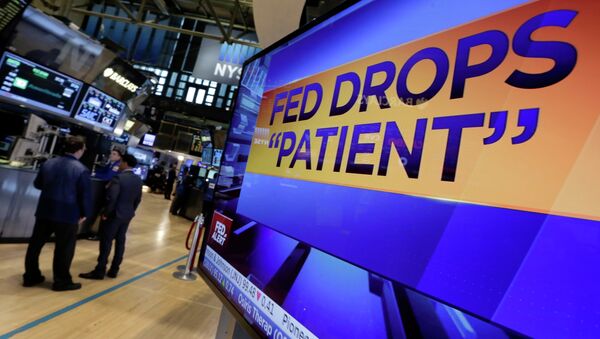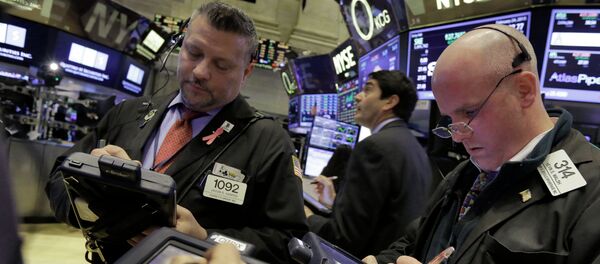The Fed on Wednesday released its Federal Open Market Committee statement, in which it dropped the words “can be patient” from its guidance to investors. The move clears the way for the Fed to raise interest rates.
Last week, Ray Dalio, founder of the hedge fund Bridgewater Associates, predicted the Fed would drop the language. He also pointed out that today’s economy is eerily similar to that of 1937.
The Fed raised rates eight years after the 1929 financial crisis, following accommodative monetary policy to boost the economy, and it still ended up being too soon. The Dow lost half of its value between 1937 and 1938.
Dalio wrote: “If one agrees that either a) we are near the end of the developed country central bankers' ability to be effective in stimulating money and credit growth or b) the dollar is the world's reserve currency and that the world needs easier rather than tighter money policies, then one would hope that the Fed will be very cautious about tightening.”
According to Dalio, the six market conditions around the 1929 financial crisis that mirror the most recent one are:
• Debt limits reached at Bubble Top, causing the economy and markets to peak (1929 and 2007)
• Interest rates hit zero amid depression (1931 and 2008)
• Money printing starts, kicking off a beautiful deleveraging (1933 and 2009)
• The stock market and "risky assets" rally (1933-1936 and 2009-2014)
• The economy improves during a cyclical recovery (1933-1936 and 2009-2014)
• The central bank tightens, resulting in a self-reinforcing downturn (1935 and 2015?)
At a press conference in Washington on Wednesday, Federal Reserve chair Janet Yellen said that "just because we removed the word 'patient' doesn't mean we're going to be impatient."
"Participants are now seeing more slack in the economy than they previously did," she added.
Yellen said that the Fed likely won't raise rates in April, but after that, raising rates is on the table "depending on how the economy evolves."
Most Wall Street analysts believe a rate hike will occur in June or September.




